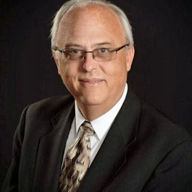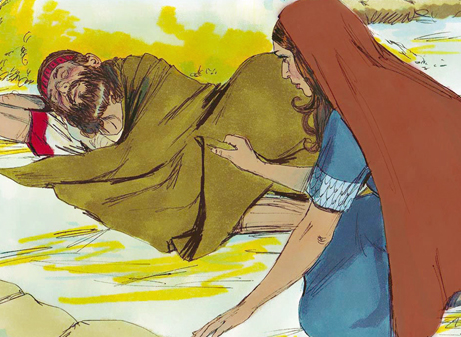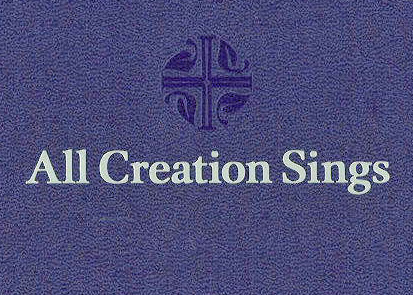April 2021
|
Happy Easter!
Easter is breathtaking! It defeats death by raising us from the
dead to live in glory for all of eternity in heaven (Hebrews
2:14). And it’s glorious because by his death (Ephesians 1:7)
Jesus sees to it that in heaven all tears are gone – as well as
death, mourning and pain (Revelation 21:4). It’s the perfect
place to be. Alleluia!
Faith in Jesus is what gets you there. So believe in him. If you
don’t, and you want to, then pray for faith and God will
increase it in you (Luke 11:13, 17:5). Christ is the victor, so
hold on to him. When you do so by faith, his victory is yours.
“Christ,” Luther preached, “tore open the belly of the devil and
the muzzle of death, not only because he was not deserving of
death, but also because he could not die. ‘Sin, death, do you
hear shameful devil, why are you accusing me?... What right have
you against me?’ Sin, death, and the devil then had to be silent
and could produce no accusation. Because sin, death, and the
devil made a mistake as far as Christ is concerned, he triumphed
as Lord over sin, death, and the devil. Not only because he was
true God, but also because he was innocent as concerns his human
nature” (Luther’s
House Postils,
ed. E. Klug, 1996, 2:11). So, hold on to Christ and when you die
it will be like falling asleep in the Lord (Matthew 9:24). Next,
you will be awakened by Christ who will meet you and take you to
heaven to be with him forever (1 Thessalonians 4:16–17, John
14:3). Alleluia! —Pastor Marshall |
|
President’s Report…by
Cary Natiello
RETURNING TO INDOOR WORSHIP SERVICES IS IN OUR FUTURE
During our last council meeting on March 9th, the Church Council
voted to change our third criteria for Resuming Indoor Worship
Services (RIWS).
Our third criteria now states, “The
Puget Sound Region (as defined by the Road to Recovery
Dashboard) is in Phase 2 or 3, AND the rate of newly diagnosed
cases per 100K people in King County during the prior two weeks
is <50.” King
County’s target is <25 per 100k people.
At the time of writing this report, that number was 86
and has been declining or staying steady.
If cases continue to drop, we could be looking at the
possibility of resuming indoor worship services in the near
future.
Why the council adopted a target of <50, rather than King
County’s target of <25:
1)
The majority of our council simply did not feel we needed to get
to King County’s lofty target of <25 before resuming indoor
worship services.
2)
<50 cases per 100k people is a reasonable threshold.
If cases in King County reach our target of <50, it will
be as a result of more people getting the vaccine while our
community continues to adhere to safety guidelines (e.g.,
wearing masks, social distancing, etc.), all of which add to our
ability to safely resume indoor services.
3)
If at any time, the number of cases in King County per 100k goes
to 50 or above, we will suspend indoor services until such time
that we can once again meet this criteria.
4)
It still requires a 2/3 vote of the council to approve RIWS.
In other words, if there are still issues in the
community that give rise for concern, the council will take
those into account and vote to wait to approve RIWS until those
concerns are alleviated.
5)
Regardless of the target, we will have in place multiple safe
and protective procedures to mitigate the transfer of the virus
while conducting indoor services.
6)
No matter what we decide as a threshold, each person will still
need to make a personal decision whether or not to attend an
indoor service.
WHAT TO EXPECT AT THE EARLY SERVICES
Before we resume indoor services, information will be mailed to
your home giving you detailed information about what to expect
during the service, expectations for your attendance, and other
precautionary safety steps being taken to protect your health &
safety.
Here are some examples of what will be in place for our initial
RIWS:
·
There will be only one service held on Sunday.
·
Each person planning to attend a service must RSVP (or sign-up)
for that service, which will allow us to ensure no more than 30
people will be in attendance at each service.
·
Instructions for taking a Health Self-Assessment before RSVP’ing
will be provided.
·
Everyone will be expected to wear a mask, maintain safe
distancing throughout the service and use the hand sanitizers
that will be available.
·
Everyone will be expected to follow all guidance of the
greeters, ushers, signage and Pastor.
·
Safe practices instructions will be explained throughout the
service by Pastor Marshall.
·
The service will be spoken, no singing during the service, but
there may be music upon entering and exiting the church.
·
As a precaution, communion will be received in individual
portions at your assigned seat.
·
We will share the peace from our seats only.
No one should attend an indoor service if they are concerned for
their health or safety.
Pastor Marshall will continue to post the abbreviated
liturgy online for those of us who do not attend services, as
well as offering in-home communion packets.
It is my hope and prayer that “herd immunity” will be
achieved no later than September 2021, and hopefully sooner,
possibly by July.
Once herd immunity occurs we will be able to once again enjoy
our glorious worship and festivals without limitations.
OTHER UPDATES
Our general fund giving through February 2021 was $52,300
against a budget amount of $45,500 (does not include designated
giving). The
significant overage is due to two gifts given in February that
were pledged amounts for the first 6 months, or for the whole
year. If we spread
these two gifts as monthly giving, we are on target to meet our
deficit budget by the end of the year.
During the first two Sundays in March, designated gifts for our
extended ministries were made totaling over $12,000.
Thanks be to God.
In our community there are many people struggling to just
meet the basics of living.
Thank you to those in our congregation who are able to
offer some additional support to local organizations helping
others in our community on a daily basis.
I am looking forward to seeing everyone soon.
Happy Easter.
Christ is risen, He is risen indeed!
. . . . . . . . . . . . . . . . . . . . . . . . . . . . . . . . . . . . . . . |
|
In
Carl Schalk’s book, More First Person Singular (2015), he
states:
“When
Christians gather to worship, they sing. They sing the
church’s song, a song the church was singing long before we
were born and a song it will be singing long after we are gone.
As the church’s liturgy reminds us at every celebration of Holy
Communion, it is the song sung with angels and archangels, and
all the company of heaven” (p. 13).
Tim
Schalk
Throughout his life (1929–2021), my father dedicated himself to
equip the church in singing the church’s song. His efforts were,
are, and will continue to be reflected in the dedication of
churches such as First Lutheran Church of West Seattle to
proclaim the saving acts of God, through Christ. Carl
composed over six hymns for your congregation. Continue to sing
those songs and continue to support writers and composers.
Together, we can join with the church on earth and the church in
heaven in giving praise to God and telling the story of God’s
redemptive work among us.
Soli Deo Gloria!
|
|
STEWARDSHIP
Method, Means and Motivation
As a retired pastor, you can well understand that I have
attended countless Stewardship and Finance Committee meetings,
annual meeting budget forums as well as monthly Church Council
meetings. Each
occasion provided an update or a forecast of the congregation’s
finances. We all
know that “stewardship” is a broader topic than “money,” but
I’ll leave the breadth of God’s gifts to us for another
occasion. I have
learned much through the years about the many aspects of
finances in the world, in my family’s life, and in the life of a
congregation funded by what is sometimes called a “free-will
offering.” For this
brief article, I’m interested in the “method” of financial
giving.
Although I’ve heard many church members say they don’t have the
“means” to give, let’s consider the “method” of giving.
When I was a boy, I pulled out the toothpaste drawer in
my house and was surprised to see a small purse bulging with
cash. The clasp had
not been latched, so the greenbacks I saw were truly impressive.
(The bulge in the purse was well beyond my own personal
stash of tooth fairy, birthday and allowance money which I kept
in my dresser drawer.)
I asked my mother what this pile of greenbacks was doing
in the toothpaste drawer.
She told me that it was my parents’ “tithe” for the
church. In the days
before the common use of checks, credit cards, automatic
payments and electronic transfers, my parents put cash in their
church’s envelope for the Sunday morning offering plate.
I never asked my parents much more about this “method” of
giving, but I have since discovered what lay behind the bulging
purse. It’s 1 Cor.
16.1-2. “Now
concerning the contribution for the saints: as I directed the
churches of Galatia, so you also are to do.
On the first day of every week, each of you is to put
something aside and store it up, as (you) may prosper, so that
contributions need not be made when I come.”
There’s both a word
about “method” and “means” tucked into those two verses.
The “method” concerns the discipline of weekly giving or
“put(ting) something aside.”
It’s as if St. Paul said: “Make it easy on yourselves.
Set aside your offering on a weekly basis, so that you
won’t have to play ‘catch up’ when I arrive to collect what you
are giving ‘the saints.’”
Another aspect of the “method” was the biblical practice
of tithing which begins in the book of Genesis and carries
through the entire Bible. The
“means” concerns “as you may prosper.”
Although we do not have
equal incomes, all of us can use the discipline of “method” and
“means” to provide for the financial needs of our congregation
and those extended ministries which we support.
And, if you adopt this “method,” you’re likely to be
surprised that the “means” will consistently be available.
Now for the
“motivation.” I can
think of no better verse to consult than 2 Cor. 8.9.
“For you know the generous act of our Lord Jesus
Christ, that though he was rich, yet for your sakes he became
poor, so that by his poverty you might become rich.”
Method, means and motivation.
Consider these “three Ms” this Easter season and every
month of the year.
―
Philip Nesvig,
Church Council |
|
Extended Ministry Our budgeted
items for Extended Ministry for the budget year 2021 add up to
$1,500 and are to be distributed to the following charitable
causes: The Agape Fund, The West Seattle Food Bank, El Camino de
Emmaus and Compass Housing Alliance (previously Lutheran Compass
Center). While this number seems small relative to the general
budget, care goes into planning according to the giving and
income into the budget. Typical years that see strong financial
giving allows the council to make additional gifts to charities
beyond the budget, usually towards the end of the budget year,
when giving trends can be determined.
Due to Covid in 2020, the need in our community was
great. Many businesses closed and unemployment numbers rose as
we went into lockdown mode. Fortunately, our church giving for
2020 was strong, which allowed the council to provide additional
critical funds to a variety of worthy charities. In the coming
months, the Extended Ministry Committee will feature some of
these organizations. From larger organizations to small local
charities, it is truly amazing to see how creative organizations
have become to meet the growing needs in our community during
this unusual time.
As always, one way our congregation can contribute is
through designated gifts. As you read about the groups our
church supports through the Extended Ministry Committee,
consider donating a designated gift through the church. If
paying by check, the name of the organization is written on the
memo line of the check. Designated gifts are above and beyond
regular giving to the church as pledged prior to establishing
the annual budget. For some, the designated gift may come out of
bonus pay, a pay raise, or some other unexpected income.
Let us ever give thanks to God for His goodness and
mercy. Remember the needy in prayer and continue to serve
whenever you can. Janine
Douglass, Church Council  |
|
Luther on Ruth
By Pastor Marshall
Martin Luther
argued that Ruth married Boaz in keeping with the law of
propinquity in Deuteronomy 25:5 because “if the brother of the
deceased man is unwilling, then the next to him in blood kinship
should marry her. Besides, Ruth didn’t demand that Boaz marry
her, but he did so because he had had an intimate connection
with her when she couldn’t be seen by him very well” (Luther’s
Works 54:301). This is a scandalous part of the Book of Ruth
(Ruth 3:4-6) that isn’t well known, but which doesn’t concern Luther at all. Whether or
not there was an actual sexual dalliance is left ambiguous for
others (E. F. Campbell, Jr.,
Ruth, 1975, p. 131,
J. Schipper, Ruth,
2016, p. 155). Still others see a sexual encounter here but not
of lust but rather grounded in a “desire to help rescue Naomi
and the family of Elimelech from extinction” (E. J. Hamlin,
Ruth, 1996, p. 46).
Even so this scene is based on a “bizarre proposal” and “the
reader is kept off balance by the characters’ choices” (K. D.
Sakenfeld, Ruth,
1999, p. 55). Indeed it is “fraught with risk…. No parent in
their right mind would send their daughter out alone into the
night under circumstances like that” (C. C. James,
The Book of Ruth,
2018, p. 65). Luther wasn’t worried apparently because he
thought God was in control (contra
Tod Linafelt, Ruth,
1989, p. 55).
|
|
Philippians
The Apostle Saint Paul
“Many… live as enemies
of the cross of Christ.”
(3:18)
by Pastor Marshall
Martin Luther thought this verse tells us
about “the way things go in the church and in the kingdom of the
world: they are at loggerheads with regard to the promises” of
God and “subvert sound doctrine” (Luther’s Works 3:14). Sadly “we are not able to persuade the
populace” (LW 58:329).
Indeed, there are even “many wicked in the church…. They are
among us, but they are not of us. They are the excrement and
spittle of the body, not members of the body, the church” (LW
16:305). This even includes church teachers being “exceedingly
vain [having] no concern for the glory of Christ or for your
salvation, but they are interested only in their own glory” (LW
27:130). They are so hardened that “no teaching, admonishing,
threatening, or promising will help” (LW
78:57). They prefer “works to suffering, glory to the cross,
strength to weakness, wisdom to folly [and] good to evil” (LW
31:53). This decay “comes from inhering naturally in human
righteousness” (LW 79:269).
“Rude, puerile, and even hypocritical are those people
who venerate the relics of the holy cross with the highest
outward honor and then flee from and curse their sufferings and
adversities…. [For only] friends of the cross are its enemies,
according to… Psalm 38:11: ‘My friends and companions have stood
against me’” (LW 25:288–89). This is an “oppositum
in adiecto [or] contradiction in terms, as it is called” (LW
67:241). Even so, the church still weeps for them. “What else
can holy men do when the world absolutely refuses to mend its
ways? This is the perpetual characteristic of the true church:
it not only experiences suffering and is dishonored and held in
contempt, but it also prays for those who afflict it and is
gravely concerned about their peril…. The church is always a
wall against the wrath of God (Ezekiel 13:5). It grieves, it
agonizes, it prays, it pleads, it teaches, it preaches, it
admonishes, as long as the hour of judgment has not yet arrived
but is impending. When it sees that these activities are of no
avail, what else can it do than grieve deeply over the
destruction of impenitent people?” (LW
2:50–51). We have to realize how tough Christianity is. “With
all your… distinguished life,” it proclaims, “you are going to
hell. Everything you do stinks and is damnable before God” (LW
79:270).
But don’t give up or cave in. Instead, glorify the cross
for “nothing is so ill suited or foreign to the Christian as
seeking relaxation and rest, and clinging to the present life is
foreign to our military calling [Philippians 2:25, 2 Timothy
2:3]…. If you love your master, die his death. Learn how great
the strength of the cross is, how much it has set right, how
much it will set right, how it is the assurance of life. Through
it everything is being accomplished” (John Chrysostom,
Homilies on Philippians, trans. P. Allen, 2013, pp. 267, 269). So
the cross is our power. It is “the strongest expression for the
radical opposition of Christian truth, not so much to moral
license and the pursuit of earthly pleasure, as rather to the
religious and ethical presumptuousness that seeks to achieve
what man is utterly incapable of achieving, what can only be
given to him in faith” (Karl Barth,
Epistle to the
Philippians, 40th Anniversary Edition, trans. J. W. Leitch,
2002, p. 113). And so we have to fight for the cross in our
lives – especially against the admixture in the church of “both
nomian and antinomian elements. [Unfortunately] it is not
difficult to find in a single congregation… compounds of
unbending legalism, strong personal attachment to Jesus Christ,
and dualistic spirituality that rejects all involvement in
maters economic, political, or social and assumes no
responsibility for the human condition. In fact, to be even more
confessional, most of us could look within ourselves and find
the residue of all these views and more, still lodged
confusedly, unreasonably, but no less really in the strange
constellation of faith” (Fred Craddock,
Philippians, 1985, pp.
66–67). |
|
Another Bad ELCA Worship Book
By Pastor Marshall
There are
three of them now. The first one was
With One Voice
(1995). The second one was
Evangelical Lutheran
Worship (2006). And the new one is
All Creation Sings
(2020).
What makes this new one so bad is what it does to the two
hymns by Martin Luther in it. It changes the words as if Luther
didn’t know what he was talking about, or because the ELCA (The
Evangelical Lutheran Church in America, est. 1988) knows
better than he did what should be sung. Even though no reason is
given for changing the words, it looks like the changes were
made to tone down his hymns. So in
Jesus Christ, Our Blessed
Savior (Hymn 963), it changes “Jesus Christ, our God and
Savior, turned away God’s wrath forever” (Luther’s
Works 53:250), to “took away our sin forever.” Could this be
a better translation of Luther’s original? Did he really mean
“sin” instead of “God’s wrath”? No, the original is
Gottes zorn, or God’s
wrath (WA 35:435). So
this new translation lies in order to avoid facing the horror of
God’s wrath. But that’s what John 3:36 and Romans 5:9 require of
us. So to strip divine wrath from this Luther hymn also attacks
Holy Scriptures. Because of that, this new hymnbook, and the
ELCA leaders responsible for it, should be cursed (Galatians
1:8). And here is one – “Let them be like the snail, which
dissolves into slime” (Psalm 58:8). And the line – “Helped out
of hell’s misery” is also changed in this hymn to the
theologically softer words, “freedom from death for us to gain.”
This earns the same curse, since hell is not Biblically
negotiable (Matthew 25:41).
The other Luther hymn is
In the Midst of Earthly
Life (Hymn 1026). True to form,
All Creation Sings
changes its line, “To thee, Lord Christ, thee only, outpoured is
thy precious blood, for our sins sufficing good” (LW
53:276), to the spiritually anemic line, “in you, O Christ, you
only, with glory from God’s loving face, and the Spirit’s
peaceful ways.” This erasing of the blood sacrifice of Christ
isn’t a more accurate translation either. In the original
Christ’s blood is included –
Bergossen ist dein
themres Blut (WA
35:454). All Creation
Sings wants this hymn to show a bloodless salvation.
Therefore, the curse in Psalm 58:8 applies here too. And Luther
would agree since he knew that the blood sacrifice of Christ
“deserved to be praised to the utmost” (LW
13:319) – just as in the first case where he insisted that God’s
wrath was “no joke” (LW
28:264).
And there are plenty of other mistakes in
All Creation Sings
which also call for the imprecation in Psalm 58:8.When listing
diverse Biblical images for God in nature (pp. 269–70), it
leaves out the scary ones like Hosea 5:12 where God is dry rot,
as well as Job 38:1, Ezekiel 13:13 and Nahum 1:3 where God is a
horrifying and destructive hurricane. This throws out Hebrews
10:31 that “it is a fearful thing to fall into the hands of the
living God” – as well as Hebrews 12:29 that “our God is a
consuming fire.” Hymn 1064 also has this light-hearted view of
nature, as does the prayer about “Mother Earth” (p. 48). Hymn
1049 worships the goodness of creation by refusing to note the
thorns and sweat (Genesis 3:18–19) that follow on the heels of
the “loss of Eden’s glory.”
Hymn 1086 tells us to “plumb the bleak abyss of doubt” to find
God, when Matthew 14:31, John 20:27 and James 1:6 forbid all
doubt. Luther believed that if we end up doubting we shouldn’t
explore it but oppose it to stop it (LW
26:379, 69:114). Hymn 1005 also has a happy view of doubt
singing “forging faith in the fire of doubt.”
And Hymn 978 says, “God welcomes all,” when Acts 10:35 says God
only accepts those “who fear him” and do what is right. This
same heretical welcoming is in the poor prayer thanking God for
the “holy wisdom that comes in other voices, in religions and
worldviews different from our own” (p. 51). But what about
Elijah? He wasn’t thankful for the prophets of Baal when he
killed 450 of them at the Kishon river (1 Kings 18:40). Nor was
Paul thankful for the idolaters when he called for repentance
and warned of coming judgment against them (Acts 17:16–31). So
keep Psalm 58:8 nearby when reading
All Creation Sings.
My critique of With One
Voice is in
CERTUS SERMO
(May 1995) – showing how John 8:34 and its slavery to sin is
denied, while promoting “unconstrained theological diversity.”
And my critique of
Evangelical Lutheran Worship (flcws.org) argues that the
exaltation of Christ in John 3:30 is shamefully reversed. So
both of them warrant Psalm 58:8 too.
|
|
“Right by the abyss of the valley of death is the foundation of
the church, the church that confesses Christ as its life. The
church has eternal life
precisely there where death is reaching out for it, and death is
reaching out for it precisely because it has eternal life. The
church that confesses is the eternal church, for Christ is its
protector. Its eternity is
not visible to the world…. But victory belongs to the
church, because Christ its Lord is with it and has overcome the
world of death. Don’t ask whether you can see victory but
believe in the victory,
for it is yours.”
(from a sermon on Matthew 16:13–18,
July 23, 1933,
Dietrich Bonhoeffer Works
12:481.) |
|
ANNOUNCEMENTS for April:
All Pastor’s Classes are through ZOOM Online.
Please contact Pastor Marshall by email (deogloria@foxinternet.com)
or phone (206-935-6530) to register for these classes.
Easter Bible CLASS
studying 1 Corinthians 15, Wednesdays at 7 pm, April 7–May 19.
COMING UP:
The next Koran Class
will be these four Mondays in May: 3, 10, 17, 24.
NEXT Zoom
Book Discussion: J. M.
Coetzee, The Death of
Jesus: A Novel, 2019, discussion on April 25th at 3:30 pm.
WEB PAGE ADDRESS:
www.flcws.org – Log on to
see what is new!
At the
moment our webpage is even more important with our Online
Worship page each
Sunday.
PASTOR MARSHALL continues to provide Home Communion upon
request.
|
|
Monthly Home Bible Study,
April 2021, Number 338
The Reverend Ronald F. Marshall
Along with our other regular study of Scripture, let us join as
a congregation in this home study. We will
study alone then talk
informally about the assigned verses together as we have
opportunity. In this way we can “gather
together around the
Word” even though physically we will not be getting together
(Acts 13.44). (This study uses the RSV translation.)
We need to support each other in this difficult project. In 1851
Kierkegaard wrote that the Bible is “an extremely dangerous
book.... [because] it is an imperious book... – it takes the
whole man and may suddenly and radically change... life on a
prodigious scale” (For
Self-Examination). And in 1967 Thomas Merton wrote that “we
all instinctively know that it is dangerous to become involved
in the Bible” (Opening
the Bible). Indeed this word “kills” us (Hosea 6.5) because
we are “a rebellious people” (Isaiah 30.9)! As Lutherans,
however, we are still to “abide in the womb of the Word” (Luther's
Works 17.93) by constantly “ruminating on the Word” (LW
30.219) so that we may “become like the Word” (LW
29.155) by thinking “in the way Scripture does” (LW
25.261). Before you study then, pray: “Blessed Lord, who caused
all Holy Scriptures to be written for our learning: Grant us so
to hear them, read, mark, learn and inwardly digest them, that
we may embrace and ever hold fast the blessed hope of
everlasting life, which you have given us in Our Savior Jesus
Christ. Amen” (quoted in R. F. Marshall,
Making A New World: How
Lutherans Read the Bible, 2003, p. 12). And don’t give up,
for as Luther said, we “have in Scripture enough to study for
all eternity” (LW
75:422)!
Week I.
Read Isaiah 8.14 noting the phrase
a rock of stumbling.
How does God make us stumble? On this read 1 Peter 2.8 noting
the word disobey. Why
do we disobey? Read Isaiah 30.10 noting the words
right,
smooth and
illusions. Why are we
looking for the easy way out? On this read Jeremiah 48.10 noting
the word slackness.
What’s the advantage in that? Check out Amos 6.1 noting the
correlation between the words
erase,
feel and
secure. Why is there
this illusion of security? Is it that being at ease implies that
there are no threats to ward off? Read Psalm 30.6 noting the
words prosperity and
never
moved. This is quite
an assumption. On its dangers, read Hosea 13.6 noting how the
word full leads to
the word forgot. This
forgetting then leads to the horrifying words about
tearing,
devouring,
rending and
destroying in Hosea 13.8–9. God explains why he punishes his
people in Isaiah 2.22. What does it mean that they are no
“account”?
Week II.
Read again Isaiah 8.14 noting the words
trap and snare.
Why does God want to trap the disobedient? On this read
Leviticus 26.15 noting the charge
you… break my covenant.
Why should God care about this?
Check out Leviticus 26.12 noting how
your God goes along
with my people. If
God didn’t care so deeply about making us his people, he could
overlook it when we break his covenants. On this divine trait,
read Exodus 34.14 noting the confession – my
name is Jealous. Does
that explain God saying,
I spread out my hands all the day to a rebellious people, in
Isaiah 65.2? How long does this divine patience last? On this
read Ezekiel 8.6 and 11.23 noting the words
drive and
went. Note also God’s
new name – the Lord is
there – in Ezekiel 48.35. But what matters most here is the
fear and
dread of the Lord in
Isaiah 8.13. Why is dread added to fear? Is it because of the
difficulty – I will teach
you the fear of the Lord – in Psalm 34.11?
Week III.
Reread Isaiah 8.14 noting this time the word
sanctuary. What does God do to help us out in this way? On
this read Isaiah 6.1 noting the
throne and the
temple in his
sanctuary. Is it
pleasant there? Read Isaiah 6.4–5 noting the words
shook,
smoke,
woe and
unclean. All of these
are disturbing words. How then does God help us in his
sanctuary? Read Isaiah 6.7–8 noting the words
guilt and
voice. What comes
from this relief and direction? See Isaiah 6.11–13 noting the
disturbing words waste,
forsaken and
burned. Is all help
gone then? Check out the line
stump remains standing
in Isaiah 6.13. That is a hopeful word because of the new growth
it promises. Note also
the stump of Jesse in Isaiah 11.1. What comes from this
stump? Check out Isaiah 9.2 noting a
great light. What
does it reveal? On this read Isaiah 53.5 noting the
healing that comes
through being wounded.
This is alarming. Read
the new thing in Isaiah 43.19. How new is it? Is it one more
thing added to the traditions of old? Check out the phrases
remember not… nor
consider… the former things in Isaiah 43.18. That’s radical,
don’t you think?
Week IV.
Read Isaiah 8.14 one last time noting the same word
sanctuary. How should
we respond to it? Check out Isaiah 44.22 which says
return to me. But how
do we do that? Read Isaiah 1.15 noting the phrase
hands… full of blood.
Refraining from violence then is a beginning. What else? Note
also the greed and disregard in Isaiah 1.23. Avoid both of them
too. Isaiah 2.11 also denigrates
pride – so humility
is far better. Isaiah 3.8 says stop
defying [the] glorious
presence… of the Lord. And Isaiah 4.4 says to rejoice in the
Lord washing away our
filth. Add both of these too. Isaiah 5.24 says not to
despise the word of the
Holy One of Israel. And Isaiah 12.1–2 says that we should
thank God and
trust in him. Both of
these readings should also be part of our response to God’s
sanctuary. But also read Isaiah 14.1–3 noting the words
choose and
rest. They keep God
in charge of our response to his sanctuary. On this read Isaiah
25.9 noting the line we
have waited for… the Lord… that he might save us. By so
doing, humility will keep pride at bay. Do you agree? |
|
Leah and Melissa Baker, Melanie Johnson, Sam & Nancy Lawson,
Marlis Ormiston, Connor Bisticas, Eileen & Dave Nestoss, Kyra
Stromberg, The Tuomi family, Angel Lynn, Tabitha Anderson, The
Rev. Albin Fogelquist, The Rev. Howard Fosser, The Rev. Kari
Reiten, The Rev. Dan Peterson, The Rev. Alan Gardner, Heather
Tutuska, Sheila Feichtner, Leslie Hicks, Yuriko Nishimura, Eric
Baxter, Evelyn, Emily & Gordon Wilhelm, Garrett Metzler,
Noel
Curtis, Lesa Christiansen,
Antonio Ortez,
Kari Meier, Richard Patishnock, Jeff Hancock, Anthony
Brisbane, Holly & Terrance Finan, Lori
Aarstad, Ty Wick, Dona
Brost, Susan Curry, Geri Zerr & Mark, Karin Weyer, Robert Shull
family, Alan Morgan family, Carolyn & Marv Morris, Lucy Shearer,
Julie Godinez, Ramona King, Karen Berg, Christine Berg, Patty
Johnson, Donna & Grover Mullen and family, Erin, Ethan & Kevin
Vodka, Kurt Weigel,
Tery Merritt, Carol Estes, Paul Jensen, Mira Frohnmayer, Wendy
Pegelow, Tak On Wong &
Chee Li Ma, Steve Arkle, Rick Rottman, Hank Schmitt, Ron Combs.
Pray for our professional Health Care Providers:
Gina
Allen, Janine Douglass, David Juhl, Dana Kahn, Dean Riskedahl,
Jane Collins
and all those suffering from the coronavirus pandemic.
Pray for the new born that they grow in the strength of the
Lord:
Yeonsco Melina Jo, daughter of Young
Taek and Cynthia Jo (Granddaughter of Janice Lundbeck) March 25,
2021.
Pray for those who have suffered the death of a loved one:
Pray that God will bear their grief and lift their
hearts: Pray for
the family and friends of Anelma (Jarvimaki) Meeks who died, on
the 8th of March, at 91 years of age.
Pray for unbelievers, the
addicted, the sexually abused and harassed, the homeless, the
hungry and the unemployed.
Pray for the shut-ins that the light of Christ may give them
joy: Bob & Mona
Ayer, Joan Olson, Bob Schorn, Doris Prescott, C.J. Christian,
Dorothy Ryder, Crystal Tudor, Gregg & Jeannine Lingle, Nora
Vanhala, Martin Nygaard.
Pray for our bishops Elizabeth Eaton and Shelley Bryan Wee, our
pastor Ronald Marshall, our choirmaster Dean Hard and our cantor
Andrew King, that they may be strengthened in faith, love and
the holy office to which they have been called.
Pray that God would give us hearts which find joy in service and
in celebration of Stewardship.
Pray that God would work within you to become a good
steward of your time, your talents and finances.
Pray to strengthen the Stewardship of our congregation in
these same ways.
Pray for the hungry, ignored, abused, addicted, and homeless
this Easter. Pray
for the mercy of God for these people, and for all in Christ's
church to see and help those who are in distress.
Pray for our sister congregation: El Camino de Emmaus in the
Skagit Valley that God may bless and strengthen their ministry.
Also, pray for our parish and its ministry.
Pray that God will bless you through the lives of the saints:
Albrecht Dürer, painter, 1528; Dietrich Bonhoeffer, teacher,
1945; Saint Mark, Evangelist; Catherine of Siena, teacher, 1380. Pray for this poor, fallen human race that God would have mercy on us all.
Pray for our planet, that it and the creatures on it
would be saved from destruction. |
|
A Treasury of Prayers Heavenly
Father, I ask only that I might have the strength to endure what
I must. I put my trust in you to grant me life beyond the grave.
In the name of Christ I pray. Amen. [For All the Saints I:1007, altered] |

.png)





